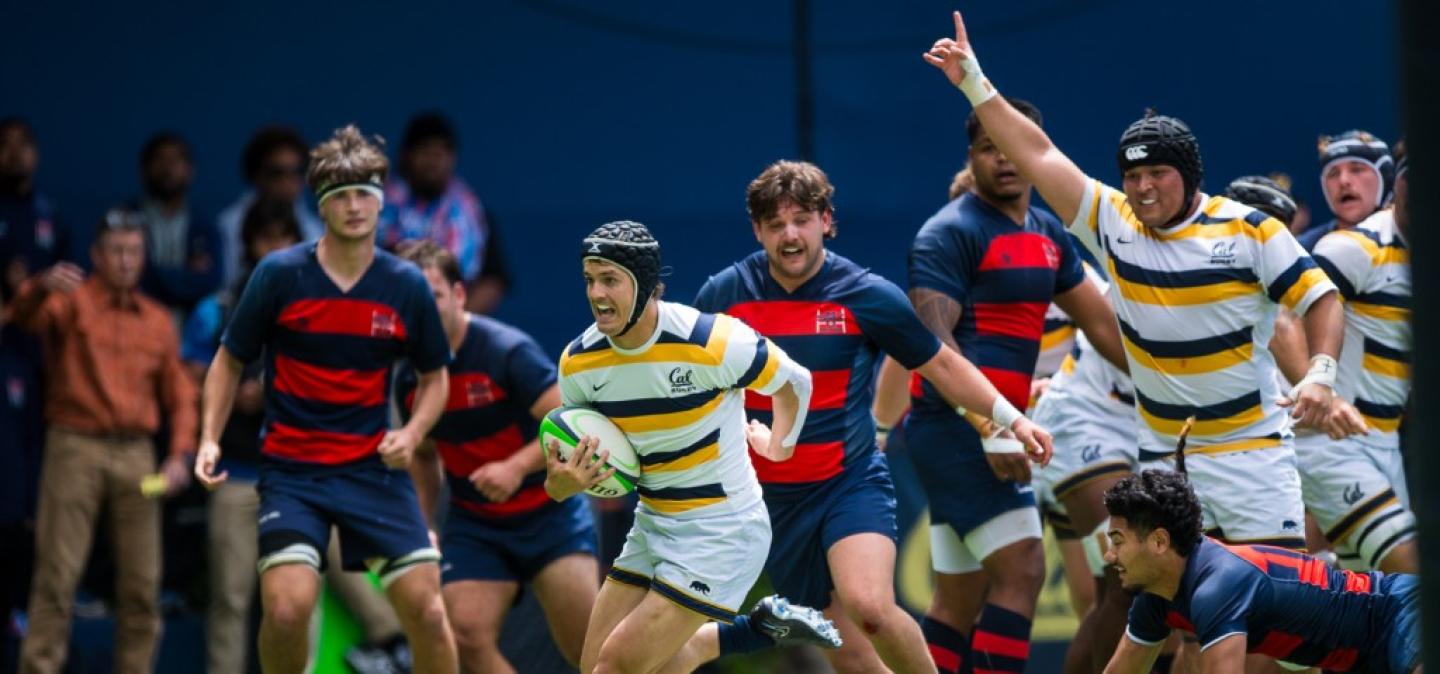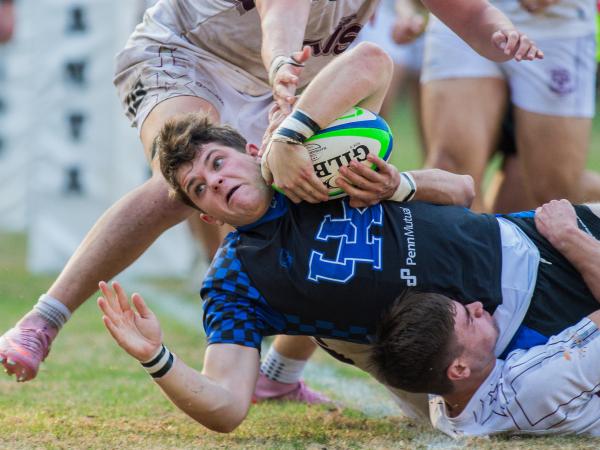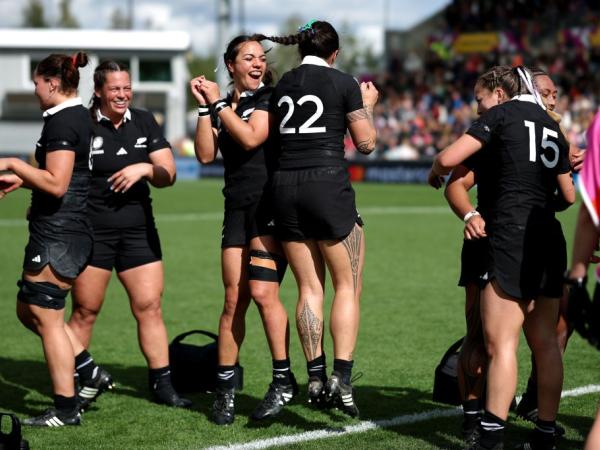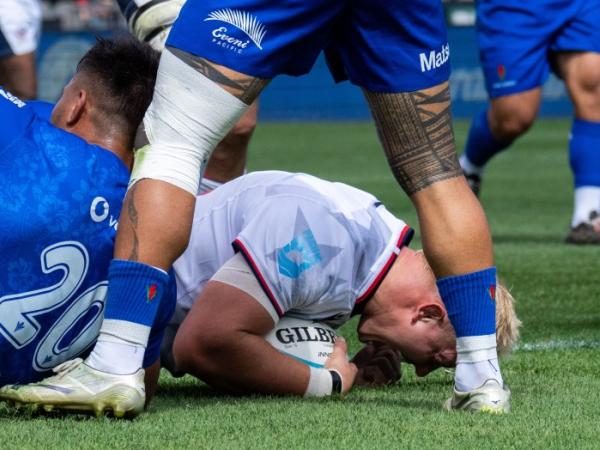In the top 15 or so everyone did what was expected in D1A.
However, we do have some interesting movement nearer the bottom. University of Utah took an important step in their development. Remember, this is a program that 20 years ago (is it that long? Wow) was in the national final and was producing Eagles. They can still play but a series of speed bumps, some not their fault, some self-inflicted, made it tough for the Utes to remain at that level.
Now? Well now back in the Rocky Mountain and competing with like-schools, the Utes beat Utah State and have an excellent opportunity to build.
Wyoming is another team that produced a strong result and it's easy to forget some of the teams in the Rocky Mountain when they are all chasing BYU. OK, fine, BYU is probably going to win the conference ... but chasing BYU can only make you better, if you determine that you will, indeed, chase, rather than throw your hands up.
If we look back to when GRR's predecessor, GoffonRugby, was formed in 2001, at that time Cal was the unmitigated leader of men's D1 rugby. (Yes, young grasshopper, there was only one D1, and everyone played in it. Did everyone get along? Of course not, it's American rugby. But they all played.) At that time most teams were, indeed, throwing up their hands at the dominance of Cal. They had so much money (true), they got all the best players (false), they had all the advantages (impossible). BYU might have been Cal's main contender, but with playoffs being played on Saturdays and Sundays, they weren't in that frame.
But then a few things started to happen. In 2003 Air Force upset Cal in the semifinals and went on to win the D1 title. That, at least, opened the door to the idea that the Bears weren't invincible. At the same time, noise started to be made about shifting the college playoffs to a Friday-Saturday format to accommodate BYU. That move indeed did happen and the first year BYU could compete they ... were beaten by Utah, who made the final against Cal. (Predicted by GoffonRugby at the time by the way!)
But the bigger work was being done behind the scenes. College coaches and advocates started whining less and planning more. How did Cal build their endowment? How did they recruit players? How did they maintain their on-campus relationships? Cal had this long rugby tradition, but didn't other colleges have a rugby tradition?
Back over 15 years ago this writer wrote a piece for Rugby Magazine about who would be the next BYU. That is, the next team to join the very upper echelon. Would it be Army, or Saint Mary's, or Arkansas State? Or, we said, how about a college that doesn't even have an undergraduate college rugby team yet ... Life University. As it turned out, all of those programs joined the upper echelon, and then Lindenwood and later Navy joined. All took pieces of the Cal lesson, or the BYU lesson. All also produced their own paths to prominence.
In 2005 this writer attended a Pacific Coast college playoff game between University of Washington and Saint Mary's. At the time, Saint Mary's was something like 1-5 or 2-4 in their conference, but they won the game against a very good UW team with a better record. Why? Head Coach Tim O'Brien told me at the time ... hard games hard hardened his team. They were building something. They weren't going to be also-rans. A few years later, in 2008, Saint Mary's almost beat Cal in the semifinals. Five years later they were in the D1A final. A year after that they were D1A champions.
While we have, of course, seen a flood of school-supported programs and the splintering of the D1 division into multiple levels, the path to success remains the same. You can sit on the sidelines and lament your lot in life, or you can learn from those that succeed and leverage what works for you to create a championship-level organization.
Since that slow epiphany in the aughts, we have seen the creation of D1A. Now, we do recognize that Cal left D1A's postseason for a while to form the Varsity Cup, a knockout competition that last for five years and didn't quite achieve what it was supposed to achieve, but did attract some top teams. Still and all, if you look at D1A starting in 2011, we've had 13 champions (lost two years to COVID). There have been six different champions. Cal has made the final five times, but their 2025 victory was their first since 2011. That is actually a legacy of what Cal (and, chiefly, Head Coach Jack Clark) has done for the game. Yes, we're a mess and one chunk of the game doesn't talk to the other chunk and it's all stupid, but right now, 6 to 10 teams are legit excellent at what they do.
NCR D1's best teams might not crack our D1A top 5 (and they wouldn't, sorry), but they certainly would have teams in the top 15.
There remains a gap between the upper levels and the lower levels in D1A (and NCR D1). But there's no option but to find a way to get better—set up your coach to success, being in volunteers to fil the admin and recruiting gaps, find the small amount of funds to be on NextPhaseRugby, recruit based on what your program brings to the table and what top players will want to come to you, speak to leaders on campus rather than hide from them. And ... above all ... do not shy away from on-field challenges.
What you also can't do it cheat. This writer had been around the college rugby game for a long time, and we've seen it again and again ... coaches who cheat, who lie about a player's grades or eligibility not only hurt themselves, they kill programs. Colleges are looking for rugby people to be irresponsible and stupid, so when you justify their prejudices, they will come down hard. I find it galling to see people in leadership roles in this game who killed programs because they wanted to sneak an ineligible player onto a team and win a game or a tournament.
But it happens. Say what you want about some of the less popular characters in this sport ... they are under a microscope and they don't cheat. You can win a championship with eligible, full-time undergraduate students. You can win without fudging someone's record or age or time out of school. And while this is cheating one way or the other, you can win with all American players. In fact it's more likely.
But it all starts with embracing losing, and embracing that it's hard, and embracing that the other guys might be better than you, for now. Because you won't get better by looking for excuses.

































































